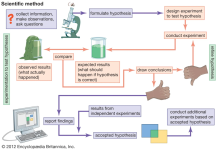So what is causing the warming?
Watch this....he will say what warming?
First off, we don't have an accurate indication of the warming. We have no reliable means to determine it. Maybe at best, to 1 degree, which leaves a huge error range when speaking of tenths. There is no way to accurately remove the noise of the urban heat island effect from stations near populations.
Observed temperatures are not actual temperatures. They go through a correction process, which has an unknown accuracy.
We have physical pollutants in the atmosphere. Some warming, some cooling, with little research on the actual quantitative effects.
We have the physical pollutants melting ice faster, decreasing albedo, and adding to the earths heat.
We might still be seeing warming from coming out of the Maunder Minima. I suspect we are at the peak, and will no longer see warming from that, but That's just an educated guess.
The ocean's response in actual heat movement centers around 800 years, so it is impossible to know that changes the natural circulation of the oceans bring.
Then there are the unknown-unknowns as well.
We simply do not know enough about these sciences yet. The idea that CO2 can have a feedback over unity, is preposterous. Anything over unity goes into a runaway mode, until a hard limit is made. If that is the case, we will not see any more warming from any added amount of CO2.
Why do you guys deny the possibility of other factors?


